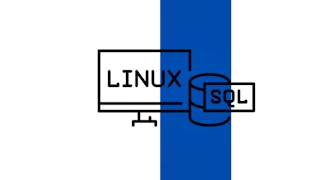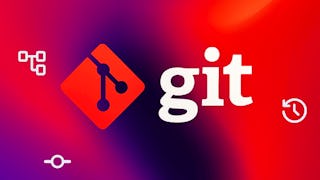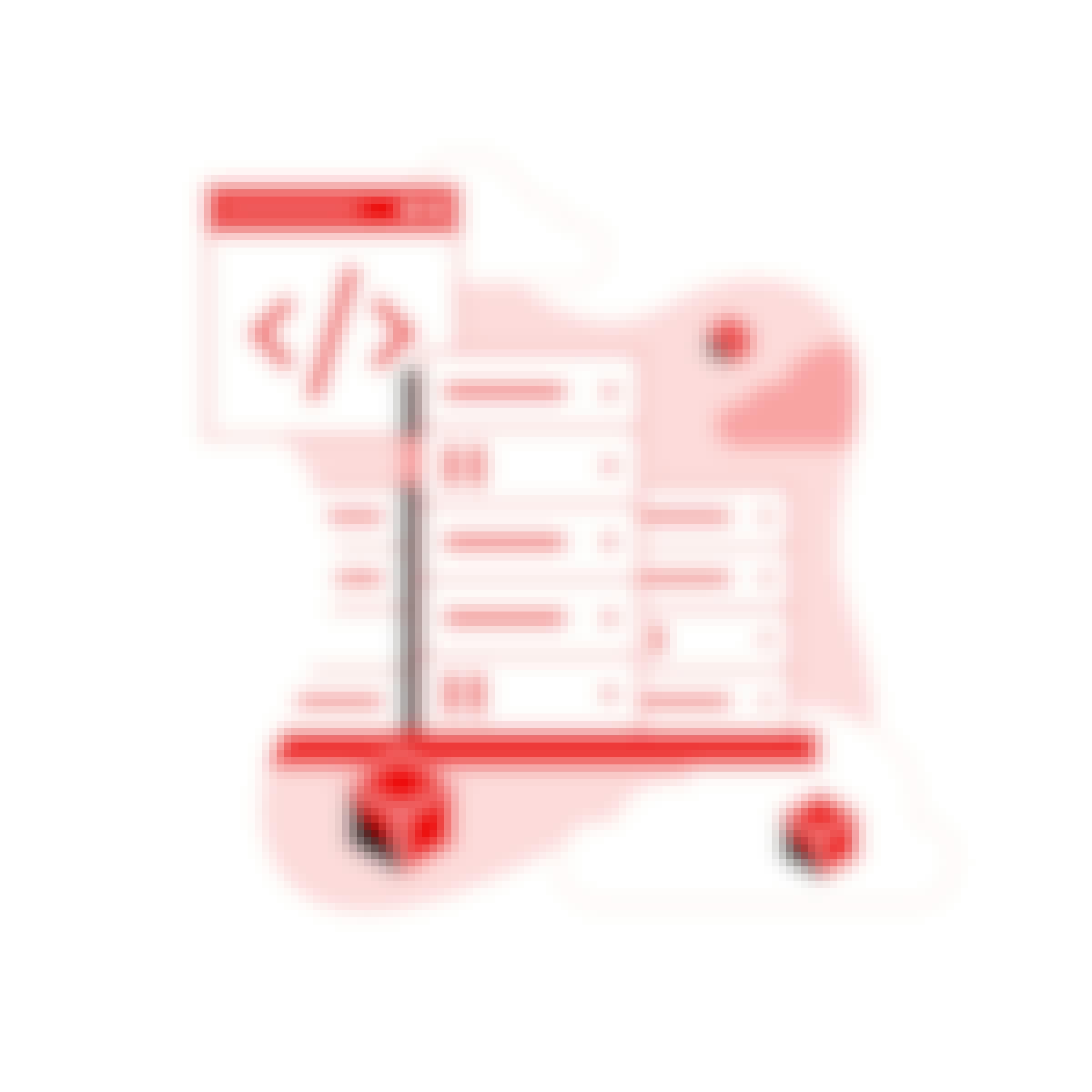- Browse
- Linux
Linux Courses
Linux courses can help you learn system administration, shell scripting, file management, and network configuration. You can build skills in user permissions, process management, and troubleshooting system issues. Many courses introduce tools like the command line interface, Git for version control, and various Linux distributions, providing practical experience in managing servers and automating tasks.
Popular Linux Courses and Certifications
 Status: Free TrialFree Trial
Status: Free TrialFree TrialSkills you'll gain: Linux Commands, Bash (Scripting Language), Shell Script, File Management, Linux, File Systems, Unix Commands, Scripting, Command-Line Interface, Ubuntu, Linux Administration, Unix, Operating Systems, Network Protocols, OS Process Management, Automation, Software Installation
4.6·Rating, 4.6 out of 5 stars1.7K reviewsBeginner · Course · 1 - 4 Weeks
 Status: Free TrialFree Trial
Status: Free TrialFree TrialSkills you'll gain: Bash (Scripting Language), Operating Systems, File Systems, Linux Commands, Linux, SQL, Unix, Database Management, Command-Line Interface, Relational Databases, Authorization (Computing), Authentications, User Accounts
4.8·Rating, 4.8 out of 5 stars6.1K reviewsBeginner · Course · 1 - 4 Weeks
 Status: Free TrialFree TrialT
Status: Free TrialFree TrialTThe Linux Foundation
Skills you'll gain: Package and Software Management, Open Source Technology, Git (Version Control System), Linux, Command-Line Interface, Bash (Scripting Language), File Systems, Unix Commands, GitHub, Linux Administration, Version Control, Linux Commands, User Accounts, CI/CD, Shell Script, System Configuration, Collaborative Software, Scripting, Software Development Tools, Software Versioning
4.6·Rating, 4.6 out of 5 stars3.1K reviewsBeginner · Specialization · 3 - 6 Months
 Status: Free TrialFree TrialL
Status: Free TrialFree TrialLLearnQuest
Skills you'll gain: Linux, Linux Commands, Ubuntu, Linux Administration, File Management, Command-Line Interface, Servers, Operating Systems, Web Servers, IT Automation, MySQL, Open Source Technology, Service Management
4.5·Rating, 4.5 out of 5 stars949 reviewsBeginner · Course · 1 - 4 Weeks
 Status: Free TrialFree TrialL
Status: Free TrialFree TrialLLearnQuest
Skills you'll gain: Package and Software Management, Linux Administration, Linux, Linux Commands, Virtual Private Networks (VPN), System Monitoring, Operating System Administration, Public Key Infrastructure, Ubuntu, Version Control, File Management, Command-Line Interface, Linux Servers, Intrusion Detection and Prevention, Git (Version Control System), File Systems, User Accounts, Firewall, Cloud Computing Architecture, DevOps
4.5·Rating, 4.5 out of 5 stars1.2K reviewsBeginner · Specialization · 3 - 6 Months
 Status: Free TrialFree Trial
Status: Free TrialFree TrialSkills you'll gain: Linux, Linux Administration, Linux Commands, Linux Servers, Shell Script, Unix, Unix Shell, Systems Administration, Unix Commands, Command-Line Interface, Patch Management, Scripting Languages, Package and Software Management, Virtualization and Virtual Machines, File Systems, File Management, Data Storage, Security Controls, User Accounts, Authorization (Computing)
4.8·Rating, 4.8 out of 5 stars8 reviewsIntermediate · Specialization · 3 - 6 Months
What brings you to Coursera today?
 Status: Free TrialFree Trial
Status: Free TrialFree TrialSkills you'll gain: Linux, Package and Software Management, Linux Administration, Red Hat Enterprise Linux, Linux Commands, User Accounts, Operating System Administration, OS Process Management, Command-Line Interface, File Management, Unix Commands, Unix Shell, System Monitoring, Network Administration, General Networking, Firewall, Open Source Technology
4.9·Rating, 4.9 out of 5 stars94 reviewsBeginner · Course · 1 - 3 Months
 Status: Free TrialFree TrialU
Status: Free TrialFree TrialUUniversity of Colorado Boulder
Skills you'll gain: Agile Methodology, Scrum (Software Development), System Programming, Embedded Software, Software Testing, Embedded Systems, Linux, Agile Software Development, Docker (Software), Git (Version Control System), File I/O, Linux Commands, Linux Servers, Linux Administration, Operating Systems, Bash (Scripting Language), Shell Script, C++ (Programming Language), Debugging, Internet Of Things
4.3·Rating, 4.3 out of 5 stars166 reviewsIntermediate · Specialization · 1 - 3 Months
 Status: NewNewStatus: Free TrialFree Trial
Status: NewNewStatus: Free TrialFree TrialSkills you'll gain: Bash (Scripting Language), Shell Script, Linux, Scripting, Linux Commands, Linux Administration, Unix Shell, Operating System Administration, Data Persistence, Unix Commands, Systems Administration, Command-Line Interface, IT Automation, Unix, Cloud Hosting, Object-Relational Mapping, YAML, Python Programming, File Transfer Protocol (FTP), Automation
5·Rating, 5 out of 5 stars44 reviewsBeginner · Specialization · 3 - 6 Months
 Status: Free TrialFree TrialT
Status: Free TrialFree TrialTThe Linux Foundation
Skills you'll gain: Package and Software Management, Linux, Command-Line Interface, File Systems, Unix Commands, Linux Administration, Linux Commands, User Accounts, System Configuration, Performance Tuning, System Monitoring, Operating Systems, Network Monitoring, Software Installation
4.5·Rating, 4.5 out of 5 stars1.4K reviewsBeginner · Course · 1 - 3 Months
 Status: PreviewPreviewK
Status: PreviewPreviewKKodeKloud
Skills you'll gain: Package and Software Management, Command-Line Interface, Linux Commands, Linux, Linux Administration, Unix Commands, File Systems, Data Storage, Network Troubleshooting, Operating Systems, Remote Access Systems, Operating System Administration, System Support, Software Installation, File Management, Service Management, General Networking, DevOps, Network Security, User Accounts
4.5·Rating, 4.5 out of 5 stars18 reviewsBeginner · Course · 1 - 3 Months
 Status: NewNewStatus: Free TrialFree Trial
Status: NewNewStatus: Free TrialFree TrialSkills you'll gain: Bash (Scripting Language), Shell Script, Linux Commands, Unix Shell, Unix Commands, Linux Administration, Linux, Scripting, Scripting Languages, File Management, Command-Line Interface, Debugging, System Configuration, User Interface (UI), IT Automation, Interactive Design, File I/O, Programming Principles
5·Rating, 5 out of 5 stars6 reviewsBeginner · Specialization · 1 - 3 Months
In summary, here are 10 of our most popular linux courses
- Hands-on Introduction to Linux Commands and Shell Scripting: IBM
- Tools of the Trade: Linux and SQL: Google
- Open Source Software Development, Linux and Git: The Linux Foundation
- Linux Fundamentals: LearnQuest
- Learning Linux for LFCA Certification: LearnQuest
- Complete Linux Training Course to Get Your Dream IT Job: Packt
- Fundamentals of Red Hat Enterprise Linux: Red Hat
- Advanced Embedded Linux Development: University of Colorado Boulder
- Linux & Python Automation with Bash Scripting: EDUCBA
- Linux for Developers: The Linux Foundation
Frequently Asked Questions about Linux
Linux is an open-source operating system that serves as the backbone for many devices and servers worldwide. Its importance lies in its flexibility, security, and robustness, making it a preferred choice for developers, system administrators, and businesses. Linux powers everything from smartphones to supercomputers, and its open-source nature allows for continuous improvement and customization. Understanding Linux is crucial for anyone looking to work in technology, as it provides a solid foundation for various IT roles.
A variety of job opportunities are available for those skilled in Linux. Common roles include Linux System Administrator, DevOps Engineer, Cloud Engineer, and Software Developer. These positions often require a strong understanding of system management, scripting, and network configuration. Additionally, many companies seek professionals who can ensure system security and optimize performance, making Linux expertise highly valuable in the job market.
To effectively learn Linux, you should focus on several key skills. These include command-line proficiency, system administration, shell scripting, and an understanding of networking concepts. Familiarity with Linux distributions, such as Ubuntu or CentOS, is also beneficial. Additionally, knowledge of security practices and troubleshooting techniques will enhance your capabilities, making you a more competitive candidate in the tech industry.
There are numerous online courses available to help you learn Linux. Some of the best options include the Complete Linux Training Course to Get Your Dream IT Job Specialization, which covers essential skills for beginners, and the Linux Foundation Certified System Administrator (LFCS) Specialization, which prepares you for certification. These courses provide a structured learning path and hands-on experience.
Yes. You can start learning linux on Coursera for free in two ways:
- Preview the first module of many linux courses at no cost. This includes video lessons, readings, graded assignments, and Coursera Coach (where available).
- Start a 7-day free trial for Specializations or Coursera Plus. This gives you full access to all course content across eligible programs within the timeframe of your trial.
If you want to keep learning, earn a certificate in linux, or unlock full course access after the preview or trial, you can upgrade or apply for financial aid.
To learn Linux effectively, start by familiarizing yourself with the command line, as it is a fundamental aspect of the operating system. You can then explore online courses, such as the C Programming with Linux Specialization, to build your programming skills alongside Linux knowledge. Practice is essential, so consider setting up a virtual machine or using cloud services to experiment with different Linux distributions.
Typical topics covered in Linux courses include command-line basics, file system navigation, user management, process management, and networking fundamentals. Advanced courses may explore into system security, shell scripting, and server administration. These topics provide a comprehensive understanding of how to operate and manage Linux systems effectively, preparing you for real-world applications.
For training and upskilling employees, courses like the Linux and Private Cloud Administration on IBM Power Systems Specialization are excellent choices. They focus on practical skills needed in the workplace, ensuring that employees can apply their knowledge directly to their roles. Additionally, the Linux Security Basics and Beyond Specialization can help teams understand security protocols essential for protecting organizational data.










